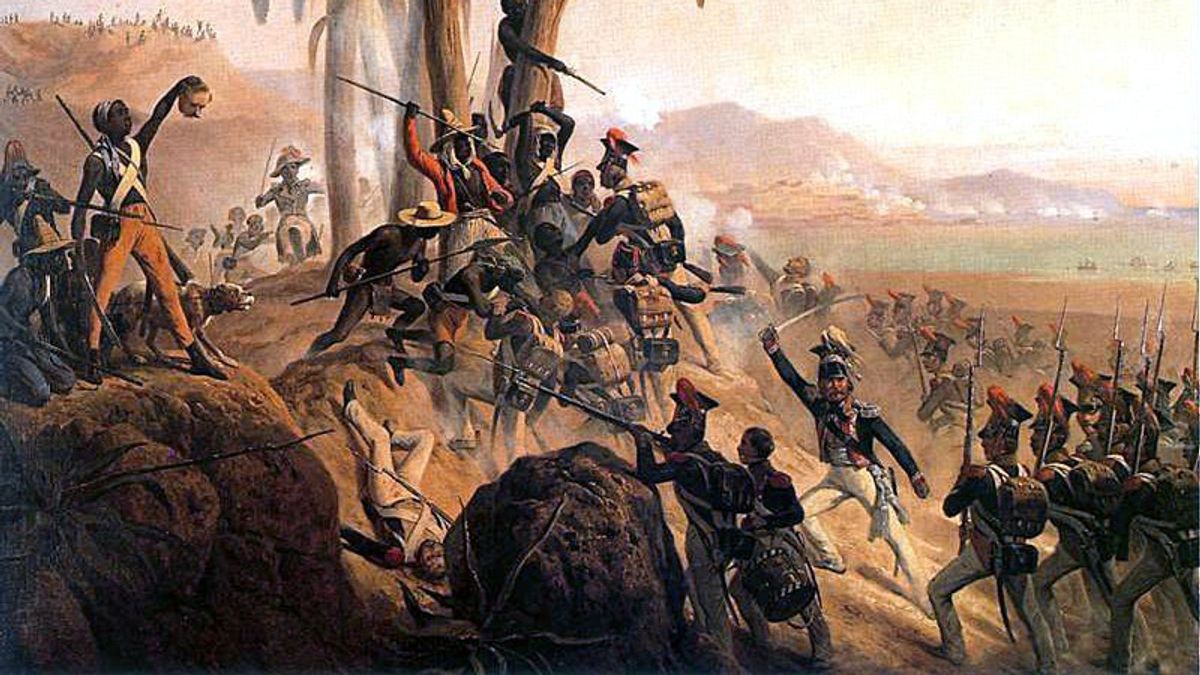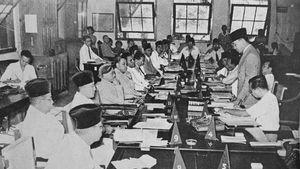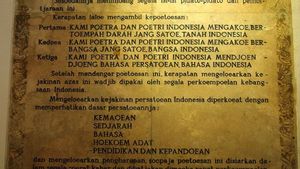JAKARTA - Every August 23, the world commemorates International Slave Trade Day. International Slave Trade Day was first observed in a number of countries, particularly in Haiti on 23 August 1998 and in Senegal on 23 August 1999.
In 2001, the Mulhouse Textile Museum (Musée de l'impression sur étoffes) in France held a fabric workshop called 'Indiennes de Traite'. The cloth served as currency for slave exchanges in the 17th and 18th centuries.
Citing the official United Nations website, the theme for International Slave Trade Day in 2021 is Ending the Legacy of Slavery Racism: A Global Order for Justice. The theme reflects the global movement to end injustice rooted in the slave trade.
This theme highlights the importance of educating the history of the slave trade and transatlantic slavery to bring about recognition of the impact of slavery on the modern world and action to address its long-term effects. The theme guides the development of educational and warning programs to mobilize action against prejudice, racism, and injustice.
The history of world slavery

Painting of the slave uprising in Haiti (Source: Wikimedia Commons)
The International Slave Trade Day is designated by UNESCO. The choice of August 23 to commemorate the International Slave Trade Day stems from the events that took place on August 22 and 23, 1791, in Haiti.
The day was the beginning of the revolt of the slaves who played an important role in the abolition of the slave trade. According to Britannica, the rise of the slave trade dates back to the 1480s.
At that time Portuguese ships transported Africans to be slaves on sugar plantations on the islands of Cape Verde and Madeira in the eastern Atlantic. Spain and Portugal then began to establish colonies around 1500 in the New World.
The Spaniards and Portuguese initially enslaved people from the local Indian tribes and employed them on plantations. But as European violence and disease attacked the natives, the Spaniards and Portuguese brought many Africans into slavery. This was the beginning of the slave trade.
Britain was also a country that depended its economy on the slave trade. Quoting the BBC, around the 1700s, the British economy underwent a change after the Atlantic slave trade.

As much as 80 percent of the British slave trade headed for Europe from ports on the east and south coasts. In 1800, 60 percent of British trade to Africa and America, sailed from the three main ports of the west coast, namely Glasgow, Liverpool, and Bristol.
Ports such as London, Bristol, and Liverpool prospered as a direct result of involvement in the slave trade. While the Port of Glasgow benefits from the tobacco trade.
Thousands of jobs were created in England supplying goods and services to slave traders. In a period when Britain was industrializing, profits could be made by exporting British manufactured goods to Africa.
Then further profits were made from slave-worked products such as sugar, which was very popular with the British people. The slave trade at that time was important to Britain in the development of the wider economy.
Financial, commercial, legal, and insurance institutions all emerged to support slave trade activities. Some slave traders became bankers and opened many new businesses financed by the profits of the slave trade.
In 1807, England abolished the slave trade. Another law passed in 1833 freed people who were enslaved in the British colonies.
An act prohibiting the importation of slaves into the United States (US) was passed by the US Congress in 1808 although it still did not outlaw slavery itself. In the 1820s, other countries, such as Spain, the Netherlands, Sweden, and France passed laws prohibiting the slave trade.
However, such laws did not necessarily stop the slave trade, because the demand for slaves was still strong and the profits from dealing in the slave trade were high. Additional legislation and continued enforcement efforts finally succeeded in ending the slave trade in the late 19th century.
*Read other information about WORLD HISTORY or read other interesting articles from Putri Ainur Islam.
More on TODAY'S HISTORY
SEE ALSO:
The English, Chinese, Japanese, Arabic, and French versions are automatically generated by the AI. So there may still be inaccuracies in translating, please always see Indonesian as our main language. (system supported by DigitalSiber.id)















